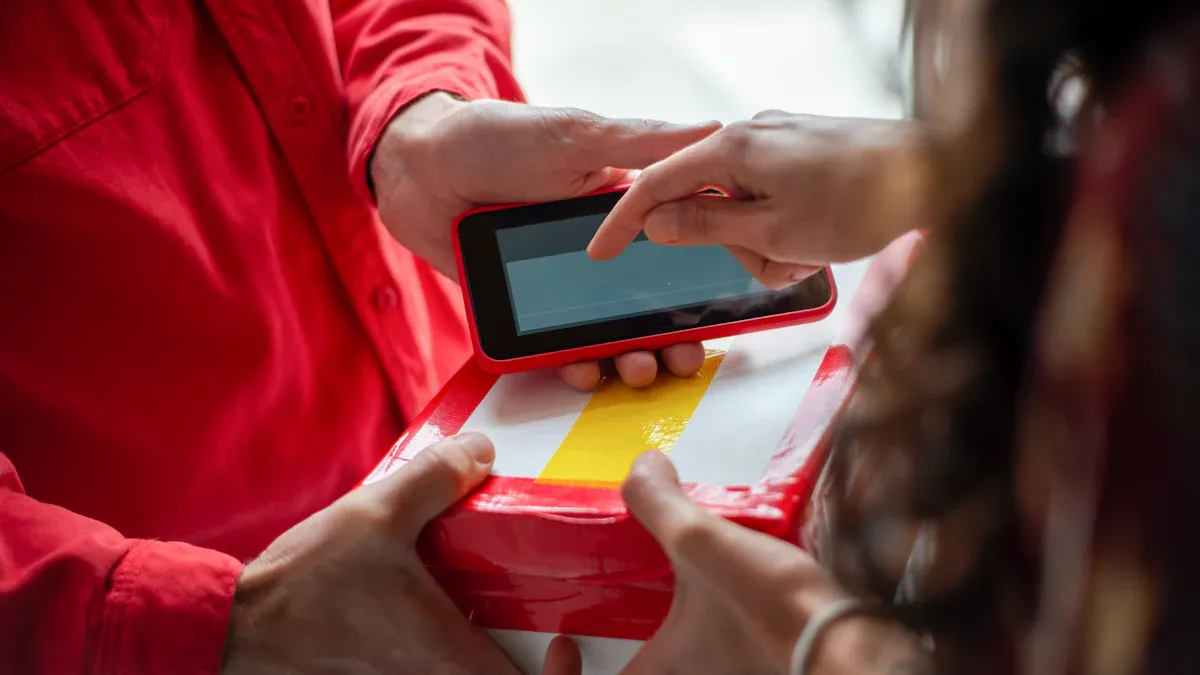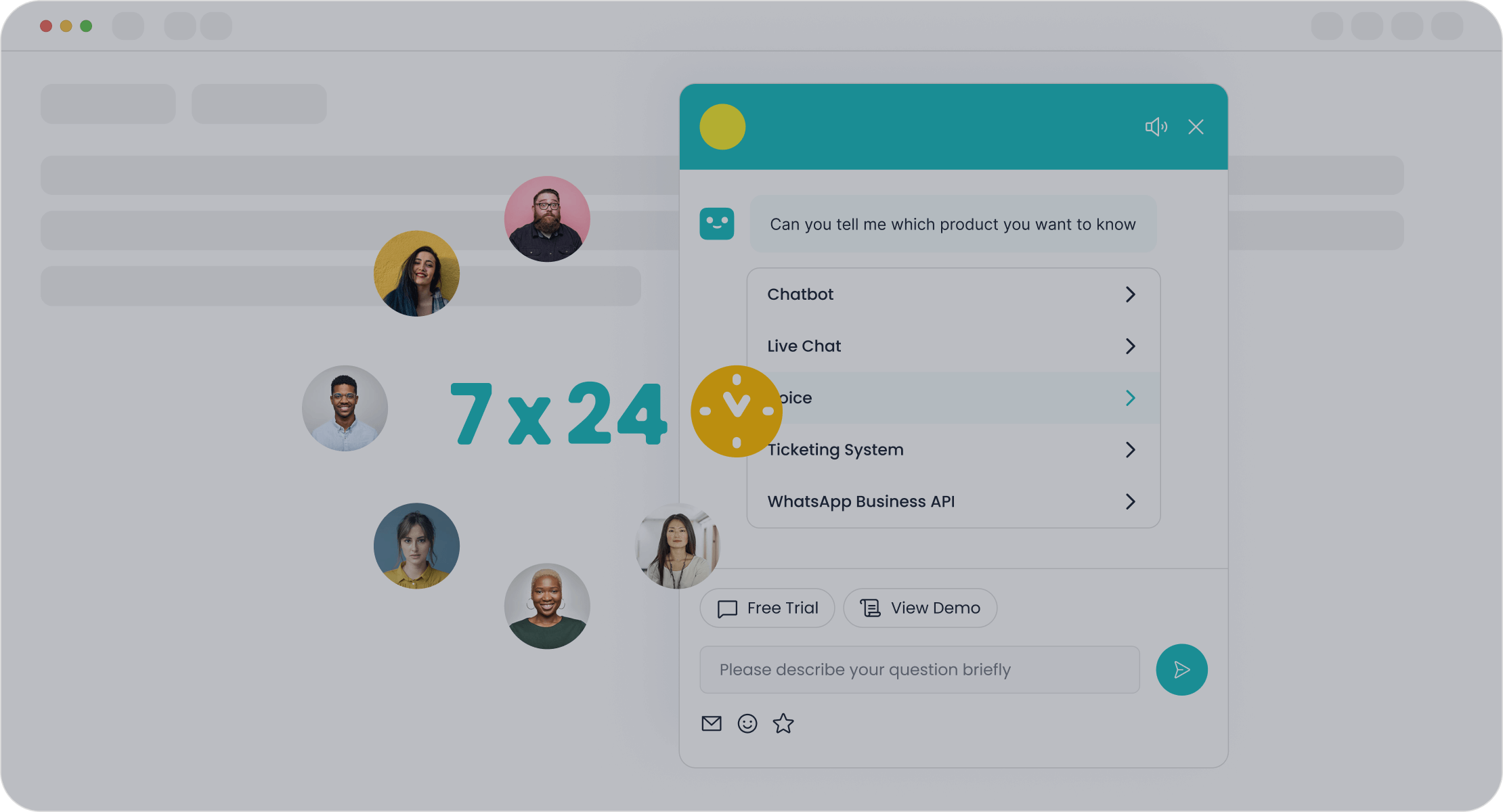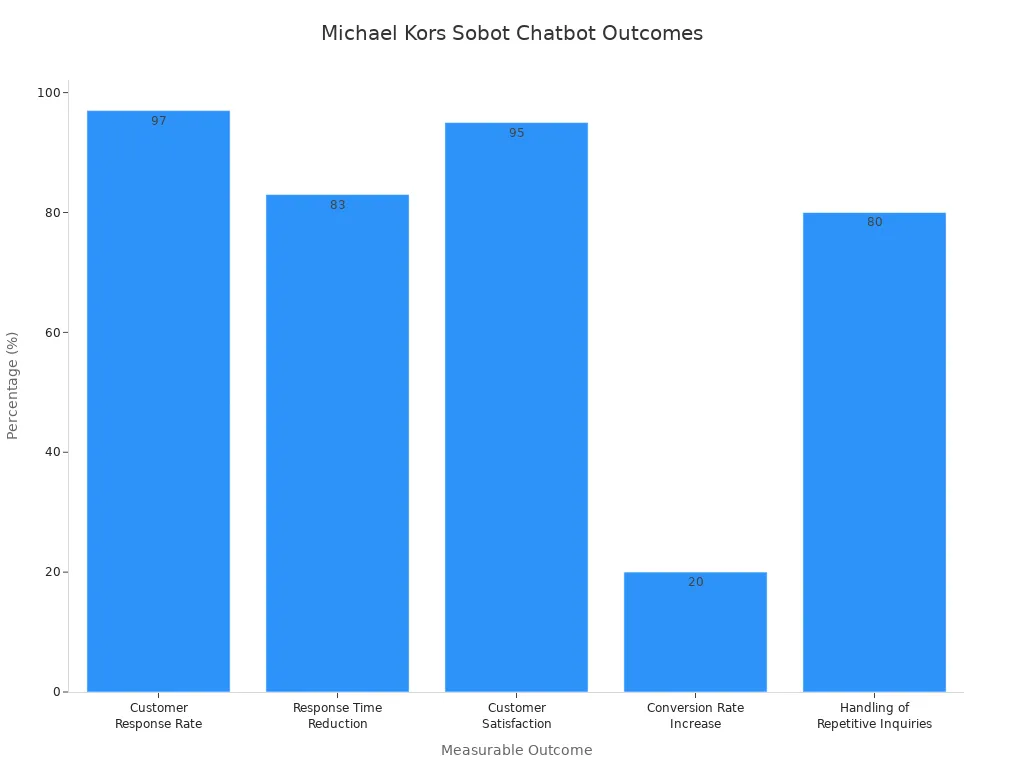What every hotelier should know about personalized guest services

AI now plays a vital role in hospitality. Hotels use technology to deliver personalized guest services and improve the guest experience. Many brands in hospitality trust Sobot to help them meet changing needs. Sobot AI supports the hospitality industry with smart tools like chatbots and omnichannel solutions. Sobot call center features help hotels answer questions fast. In hospitality, AI powers 24/7 support, connects channels, and learns from guest data. Hotels in hospitality see more satisfied guests with these tools. Hospitality leaders trust AI and Sobot to make every stay special. Today, hospitality moves forward with AI at its core.
Guest Experience Evolution
Changing Expectations
Guest expectations in hospitality have changed quickly over the past five years. Today, travelers want more than a clean room and friendly staff. They look for unique experiences that match their personal needs. Hotels now use data and AI to learn about each guest. This helps them offer services like flexible check-in, custom room settings, and special food options. Many guests also want to explore local attractions during their stay. Almost two-thirds of travelers choose hotels based on access to local experiences.
The table below shows how guest expectations for personalized guest services have evolved:
| Aspect of Personalization | Evidence of Change in Guest Expectations |
|---|---|
| Desire for Greater Personalization | 71% of hoteliers want to provide more personalized services, but only 15% feel effective at it. |
| Personalized Recommendations | Hotels now suggest activities based on guest preferences, not just generic options. |
| Dietary Preferences | About 70% of restaurants send offers based on customer habits and preferences. |
| Data-Driven Personalization | Over 90% of cruise lines use analytics to customize itineraries and experiences. |
| Technology Preferences | 77% of guests favor automated messaging or chatbots; 73% prefer self-service; 49% want contactless payments. |
| Balance of Tech and Human Touch | Guests still value meaningful human service, showing a need for a hybrid experience. |
| Emerging Travel Trends | Bleisure and workation travel create demand for flexible, personalized services. |
Guests now expect hotels to blend technology and human service. They want both fast digital help and warm personal attention. The rise of bleisure and workation travel means hotels must offer flexible services, such as co-working spaces and in-room fitness. These trends show that hospitality must adapt to meet new guest needs.
Technology’s Role
AI and technology now shape the guest experience in hospitality. Hotels use AI-powered chatbots to answer questions at any time. Sobot’s AI chatbot, for example, helps hotels respond to guests in multiple languages and across different channels. This makes service faster and more personal.
- Major hotel brands use mobile apps for digital check-in, room selection, and smartphone keys. These tools make stays more convenient.
- Smart room technology lets guests control lights, temperature, and entertainment with their phones or voice. This creates a custom environment for each guest.
- AI and data analytics help hotels learn guest preferences. Hotels can then offer personalized amenities and services, which increases satisfaction.
- Contactless check-in and checkout systems reduce wait times and improve reviews.
- Automation and cloud-based systems streamline hotel operations. Staff can focus more on guest interactions, which improves the guest experience.
Note: Real-time guest feedback and sentiment analysis allow hotels to adjust services quickly. This leads to better reviews and more repeat visits.
Sobot’s omnichannel solutions help hotels manage all guest interactions in one place. This unified approach supports both digital and human service, meeting the high standards of modern hospitality. As AI continues to grow, hotels that use these tools will lead in guest satisfaction and loyalty.
Personalized Guest Services in 2025

AI and Data Analytics
AI in hospitality will shape the future of personalized guest services. By 2025, hotels will rely on advanced data-analytics and AI to understand guest preferences and predict needs. AI-driven data analytics will help hotels optimize energy use and staff allocation. This leads to cost savings and smoother service. AI-powered chatbots will handle reservations and answer questions at any time. These chatbots can speak many languages and work across different channels.
Hotels will use AI to analyze guest behavior and booking history. This allows them to send personalized offers, such as early check-in for business travelers or spa perks for leisure guests. Timing matters. Hotels will deliver these offers before arrival, at check-in, or during the stay. This approach increases guest engagement and revenue. Studies show that 71% of consumers expect personalized interactions, and 76% feel frustrated when they do not receive them. Hotels that use AI in hospitality can meet these expectations and boost satisfaction.
AI in hospitality also supports smart concierge services. These services give guests instant recommendations and information. Voice-activated AI assistants will let guests control room features hands-free. Personalized room settings will adjust climate, lighting, and entertainment based on guest preferences. IoT integration for smart hotel rooms will make this possible. IoT devices will connect to AI systems, creating seamless and personalized guest experiences.
AI in hospitality will also improve hotel operations. Over 70% of hotel executives plan to automate operations to increase productivity. AI tools will monitor real-time guest feedback and resolve issues quickly. Dynamic pricing models powered by AI will adjust room rates based on demand and competitor pricing. This helps hotels maximize revenue and stay competitive.
Sobot’s AI-powered chatbots and analytics tools lead the way in modern hospitality solutions. Sobot’s Chatbot works 24/7, supports multiple languages, and integrates with popular channels like WhatsApp and SMS. Hotels using Sobot’s platform can automate guest interactions, reduce costs, and improve satisfaction. Sobot’s analytics dashboard gives hotels insights into guest behavior, helping them refine their personalized guest experiences.
Omnichannel Solutions
Omnichannel solutions will become essential in hospitality by 2025. Hotels must connect with guests across many channels, such as online chat, WhatsApp, SMS, and booking platforms. Centralized data management systems will collect guest information from all sources. This allows hotels to personalize service at every touchpoint.
Cloud-based property management systems will give staff real-time access to guest data. This ensures consistent service, even across multiple properties. Integrated CRM systems will track guest profiles and preferences. Hotels can then anticipate needs and send targeted promotions or reminders. Mobile and web apps will serve as key guest touchpoints for booking, check-in, and service requests.
Sobot’s Omnichannel Solution stands out in this area. The platform unifies all guest messages in one workspace. Staff can see every interaction, no matter the channel. Sobot’s AI in hospitality helps agents respond faster and more accurately. The system also automates routine tasks, freeing staff to focus on complex guest needs.
The impact of omnichannel AI platforms like Sobot is clear. Hotels using these systems see higher customer retention and satisfaction. For example, Sobot’s AI chatbot helped OPPO achieve an 83% resolution rate. Hotels using omnichannel engagement report a 287% increase in purchase rates and an 89% customer retention rate. By 2025, AI will handle up to 95% of customer interactions in hospitality, making service faster and more seamless.
| Metric | Omnichannel AI Platforms (e.g., Sobot) | Traditional Guest Service Methods |
|---|---|---|
| Customer Retention Rate | 89% | 33% |
| Purchase Rate Increase | 287% | Lower (single-channel campaigns) |
| Chatbot Resolution Rate | 83% (OPPO with Sobot) | N/A |
| Repurchase Rate Increase | 57% (after Sobot AI chatbot) | N/A |
| AI Handling of Customer Interactions | 95% expected by 2025 | Mostly human-driven |
Hotels choosing an omnichannel platform should look for support across all guest-preferred channels. The platform should offer AI-powered guest services, digital access to property information, and personalized upselling opportunities. Sobot’s Omnichannel Solution meets these needs, helping hotels deliver consistent and personalized guest experiences.
Contactless Technology
Contactless technology will define the guest journey in hospitality by 2025. Over 81% of hoteliers have already implemented or plan to implement at least one contactless solution. Guests now expect contactless check-in, digital keys, and mobile payments. The use of mobile keys in hotels increased by 45% during 2020 and 2021, with further growth expected.
Contactless check-in and check-out can be completed on mobile devices, often without downloading an app. Digital keys accessed through smartphones or wearables improve security and convenience. Nearly 75% of guests prefer digital keys over traditional cards. Contactless payments are also on the rise, with forecasts showing over 80% of consumer credit cards will support this technology by 2026.
AI in hospitality supports these contactless experiences. AI-powered chatbots and digital concierge bots provide instant assistance. Guests can request services, get information, and interact with staff without physical contact. Self-service technologies, such as contactless checkout forms, let guests check out remotely and notify housekeeping.
IoT and AI work together to create seamless experiences. IoT integration for smart hotel rooms allows automatic adjustment of room settings based on guest preferences. This includes climate, lighting, and multimedia controls. AI in hospitality ensures these adjustments happen in real time, making each stay unique.
Hotels must balance automation with personal service. While contactless technology improves safety and efficiency, the human touch remains important. Flexible and adaptable systems help hotels respond to changing guest needs. Sobot’s solutions integrate contactless features with AI and analytics, supporting both digital and in-person hospitality.
Note: 92% of hoteliers report that guests are now more accepting of contactless technology than before the pandemic. Hotels offering self-service technology see higher guest satisfaction and loyalty.
Modern hospitality solutions like Sobot help hotels embrace innovation while maintaining memorable guest experiences. By 2025, personalized guest services will rely on AI, analytics, omnichannel platforms, and contactless technology to meet and exceed guest expectations.
AI in Hospitality

Sobot Chatbot

AI in hospitality has transformed how hotels interact with guests. Sobot Chatbot stands out by offering multilingual support, 24/7 availability, and a no-code setup. Hotels use Sobot to provide instant, personalized service across chat, voice, email, social media, and SMS. The chatbot recognizes guests by name and remembers preferences, creating ai-enhanced interactions. Sobot’s omnichannel AI connects all guest communication, making every conversation seamless.
- Sobot Chatbot handles inquiries, reservations, and special requests without delay.
- It offers customized recommendations for dining, local attractions, and amenities.
- Hotels automate routine tasks, freeing staff to focus on complex needs.
- The chatbot supports over 50 languages and uses natural language processing for accurate replies.
- Sobot’s reporting tools help hotels monitor performance and optimize service.
Michael Kors, a global fashion brand, used Sobot Chatbot to improve hospitality operations. The results show measurable benefits:
| Measurable Outcome | Metric/Value |
|---|---|
| Customer Response Rate | 97% on Facebook Messenger |
| Response Time Reduction | 83% decrease |
| Customer Satisfaction (CSAT) | 95% |
| Conversion Rate Increase | 20% |
| Handling of Repetitive Inquiries | Up to 80% |
| Support Availability | 24/7 |

Smart Room Tech
Hotels now use smart room tech powered by ai and iot to create personalized room settings. Guests control lighting, temperature, and entertainment with their phones or voice. Smart thermostats and lighting systems adjust automatically, saving energy and improving comfort. IoT integration for smart hotel rooms allows hotels to monitor and fix issues quickly, reducing downtime. These features lead to higher guest satisfaction and loyalty. Hotels also see lower utility bills and better staff productivity. Smart concierge services use ai to offer instant recommendations, making each stay unique.
Guest Messaging
Guest messaging technology powered by ai in hospitality improves both operations and guest satisfaction. AI-powered chatbots handle up to 90% of routine questions, reducing front desk workload. Unified messaging platforms bring SMS, WhatsApp, and other channels into one interface, enabling enhanced guest communication. Automated messages trigger based on guest actions, increasing engagement. Hotels use these platforms to send upsell offers, boosting revenue by up to 15%. Deep integration with hotel systems ensures messages reflect real-time guest context. This approach streamlines communication and delivers a consistent, personalized experience.
Benefits of Personalization
Guest Satisfaction
Personalized guest services play a key role in raising guest satisfaction in hospitality. When hotels use ai to tailor each guest experience, guests feel valued and cared for. A large study with over 900 participants found that unique and thoughtful personalization builds strong emotional bonds between guests and hotels. This emotional value leads to higher satisfaction, trust, and loyalty. Guests notice when hotels put effort into making their stay special. They respond with positive attitudes and a greater desire to return. In hospitality, moving beyond standard service to people-focused personalization is essential for a memorable guest experience. Sobot’s ai-powered chatbots help hotels greet guests by name, remember preferences, and provide instant support, making every interaction feel personal.
Hotels that invest in high-effort personalization see better reviews and stronger guest loyalty.
Operational Efficiency
Personalization in hospitality also improves how hotels operate. By using ai and data analytics, hotels can predict guest needs and prepare in advance. This helps staff work smarter and reduces wasted effort. For example, Sobot’s omnichannel solution brings all guest messages into one workspace, so staff can respond quickly and accurately. Automation handles routine tasks, freeing employees to focus on complex requests. The table below shows how personalization boosts key efficiency metrics:
| Operational Efficiency Metric | Description | Ways Personalization Improves Metric |
|---|---|---|
| Employee-to-Room Ratio | Measures staffing efficiency | Ai-driven scheduling and cross-training reduce unnecessary labor |
| Housekeeping Efficiency | Rooms cleaned per staff hour | Personalized schedules based on guest data improve productivity |
| Check-in/Check-out Efficiency | Processing time per guest | Pre-arrival data and mobile check-ins reduce wait times |
| Repeat Guest Ratio | Returning guests to total | Tailored loyalty programs increase retention and lower costs |
Hotels using ai solutions like Sobot report a 30% drop in routine inquiries, which lets staff focus on delivering high-quality, personalized guest experiences.
Revenue Growth
Personalization drives revenue growth in hospitality. Guests are willing to pay more for tailored services and unique experiences. Studies show that:
- Personalized experiences can increase hotel revenue by up to 15% (Deloitte).
- 80% of consumers are more likely to engage with companies that offer personalized experiences.
- 48% of guests are more likely to return to hotels that customize their stay.
- Technologies like ai-powered smart room controls and CRM systems help hotels upsell services and send targeted offers.
- Higher guest satisfaction and loyalty from personalization lead to more repeat bookings and lower acquisition costs.
Hotels measure the return on investment from ai and omnichannel solutions by tracking metrics like net profit, guest satisfaction, and operational improvements. For example, a luxury resort chain used ai to unify guest data, which led to double-digit growth in ancillary revenue and higher satisfaction scores.
Future Challenges and Solutions
Integration
Hotels in hospitality often face integration challenges when adopting new ai solutions. Many properties use different systems for reservations, point-of-sale, property management, and CRM. These systems do not always communicate well. Legacy systems can make it hard to connect new ai tools, causing issues like duplicate receipts or missed payments. Compatibility problems also arise because systems use different data formats and standards.
- Disparate systems create data silos.
- Legacy platforms slow down ai adoption.
- Data exchange becomes difficult with varied formats.
- Middleware can help bridge gaps between old and new systems.
To overcome these challenges, hotels in hospitality can use several strategies:
- Start with a phased implementation in one department.
- Choose ai solutions that work well with current hotel software.
- Partner with experts who understand both ai and hospitality.
- Involve leadership to support and guide the process.
- Use middleware to connect systems and enable smooth data flow.
Sobot’s omnichannel platform offers seamless integration with many hotel management systems. Its analytics tools help hotels track guest interactions and improve service.
Data Privacy
Data privacy remains a top concern in hospitality as hotels collect more guest information through ai and advanced data-analytics. Hotels must protect guest data and follow privacy laws. Strong encryption and secure storage are essential. Staff should only access data needed for their roles. Regular audits help find and fix risks.
Sobot’s solutions use secure data practices and provide detailed analytics. This helps hotels in hospitality keep guest information safe while using ai to personalize services.
Tip: Always update privacy policies and train staff on data protection.
Staff Training
Staff training is key for successful ai adoption in hospitality. Employees need to understand how to use new ai tools and analytics. Ongoing training helps staff stay updated as ai evolves. Hotels should offer clear guides and support for new systems.
Sobot provides training resources and support for its ai-powered solutions. This ensures hotel teams can use analytics and ai features with confidence. Well-trained staff deliver better guest experiences and help hotels prepare for the future.
| Challenge | Solution Example |
|---|---|
| Integration | Sobot’s seamless platform |
| Data Privacy | Secure analytics and practices |
| Staff Training | Ongoing support and resources |
Hotels that address these challenges with ai and analytics will lead the hospitality industry into the future.
Hotels that embrace ai and omnichannel solutions lead the way in delivering personalized guest services. Sobot helps hotels unify guest data, automate tasks, and provide 24/7 multilingual support. The benefits include faster response times, higher guest satisfaction, and smarter staff scheduling. To start, hotels should:
- Use ai chatbots for instant guest support.
- Integrate systems for real-time data.
- Segment guests for tailored offers.
- Collect feedback to improve services.
- Invest in ongoing ai training.
These steps prepare hotels for the future and help them exceed guest expectations.
FAQ
What is the main benefit of using ai in hotels?
Hotels use ai to give guests faster and more personal service. For example, ai chatbots answer questions 24/7. Sobot’s ai solutions help hotels cut response times by 83% and raise customer satisfaction to 95%. These numbers show real improvement.
How does ai help hotel staff work better?
Ai automates routine tasks, like answering common questions or booking rooms. This lets staff focus on complex guest needs. Sobot’s ai platform helps hotels manage all guest messages in one place, making work easier and more organized.
Can ai improve guest satisfaction in hospitality?
Yes. Ai learns guest preferences and suggests services or upgrades. Guests feel valued when hotels remember their needs. Sobot’s ai chatbot greets guests by name and offers custom recommendations. Hotels using ai see higher guest loyalty and better reviews.
Is guest data safe when hotels use ai?
Hotels must protect guest data. Sobot uses secure data practices and strong encryption. Regular audits help keep information safe. Hotels that use ai should always follow privacy laws and train staff on data protection.
How do hotels start using ai for guest services?
Hotels can start with an ai chatbot for instant support. Sobot offers a no-code setup, so hotels do not need special skills. Staff can learn quickly. Hotels should also connect ai tools with their booking and property systems for best results.
See Also
Top Strategies To Improve Customer Satisfaction Via Live Chat
How To Excel At Live Chat Support In Retail
Comprehensive Overview Of Quality Management Systems For Call Centers
Effective Techniques For Managing Live Chat Support Agents
Essential Best Practices For Quality Management In Call Centers
